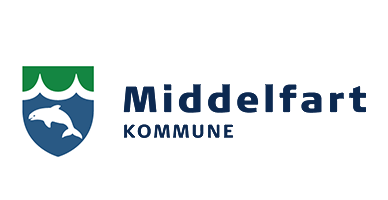None is too big or too small - everyone is welcome! This was the message in spring 2017, when Middelfart Municipality looked for companies that would help develop a climate education concept for the municipal primary and secondary schools.
The objective is that school teachers, pupils and companies together learn, develop and endeavour to work through climate issues - for the benefit of all parties.
"The Climate Laboratory - next generation" is the name of the project in which the municipal school together with local businesses, the municipal Children, Youth and Leisure Administration and Technology and Environment Administration are developing a course of study that will raise the awareness of pupils in primary
and secondary school of the mechanisms and factors affecting the climate in both the positive and negative direction.
In "The Climate Laboratory - next generation", the individual courses of study are based on concrete, current climate issues in local businesses for which the pupils develop solutions in collaboration with the employees of the company in question.
A four-phased development process
When a collaboration between a school and a company is established, it comprises the four following phases:
Phase 1: Balancing of expectations
At this stage, the school and the company agree on the framework for their collaboration. This includes the start and end of the course, the interaction between the school and the company during the course and the reporting form.
Phase 2: Issues
The schools’ climate counsellor and the company collaborate to identify issues that teachers can use as the basis for a course of education.
Phase 3: Teaching
Teachers, pupils and businesses start the course of study prepared on the basis of the issues on which the school and the company have chosen to collaborate.
During this phase, there is regular interaction between the school and the company. The interaction is typically via Skype, email or meetings face-to-face.
Phase 4: Reporting
Once the course of study has been completed, the school reports to the company. At this stage, the pupils pitch their ideas for solutions to the issue they have worked with.
Pupils typically report using a PowerPoint presentation, illustrative boards, prototypes or programmed models that illustrate their proposed solutions.
On completion of the collaboration, the climate counsellors are facing a task at their local schools. They are tasked with communicating the concept to the other teachers at the school. The climate counsellors are available to other school teachers as part of the "Educational Learning Centres" on each school.
The other teachers at the school are thus able to seek inspiration and get practical assistance from the climate counsellors for similar collaboration between the school and a company.
A triple win: Learning experiences for businesses, pupils and teachers
The courses of study are designed to include both the supporting teaching and “Open School”. In this way, "Climate Laboratory - next generation" becomes a good and concrete tool for the teachers at primary and secondary schools.
”Climate Laboratory – next generation” transforms learning - not only for the pupils, but also for the teachers and the local businesses that participate.
The pupils achieve the following:
Professional disciplines (physics, maths, etc.) are linked to a concrete and present issue - meaningful learning increases academic benefit and motivation.
General awareness of the climate and the mechanisms that affect it both positively and negatively (we also know that the children tend to take home their knowledge and act as ambassadors)
Insight into the everyday life of a company and an authentic experience of contributing to a company.
The teachers achieve the following:
In phase 1, the climate counsellors receive a skills upgrade in relation to innovative teaching which may be used in many other contexts (the course of study is led by Anne Kirketerp, psychologist, PhD, external lecturer at AU)
The collaborations with companies provide teachers with closer bonds to business life and provide insight into both the personal skills demanded from future employees (the pupils) by the companies and the opportunity for a professional brush-up (the physics teacher may e.g. be inspired by new choices of material in production companies, etc.)
In Phase 2, all teachers gain access to tailormade courses that may be copied - or modified with the assistance of the climate counsellors
The companies achieve the following:
Awareness of sustainable development and production is intensified - already in the introduction to "Climate Laboratory - next generation" when the Technology and Environment Administration and the Children, Youth and Leisure Administration collaborate to recruit candidate companies.
The study courses support future recruitment. Both directly through the opportunity arousing the pupils’ curiosity for the company/trade. And also indirectly, by giving the teachers insight into the skills that companies are demanding – e.g. discriminate decision-making, problem-solving, innovative thinking, facilitation of processes, etc.
Through the pupils' work on a concrete issue, companies receive new proposals for sustainable solutions to their challenges - and skewed angles that may inspire development.
Strengthened local foundation through the collaboration with local schools.
Ability to challenge employees and letting them develop new skills through their participation in the teaching at the schools in question.

The next generation

